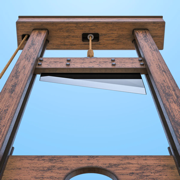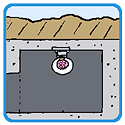|
Morholt posted:Sweden was not on Napoleon's side. Britain did blockade Sweden during the Great Northern War, and there was a minor naval engagement in the Channel. Not entirely true. After losing horribly to Russia in the Finnish War (Gustav IV lost his job over this gently caress-up!) Sweden lost Finland and were forced to declare war on Britain. It was very much for show, as there were no encounters at all, but between 1810 and 1812 we "fought" on Napoleon's side. http://en.wikipedia.org/wiki/Anglo-Swedish_War_(1810%E2%80%931812) But it is even less true that we were mostly on the French side, as Sweden was an enemy of France in the Second, Third, Fourth and Sixth Coalition, and was extremely non-commital when forced to be on the side of Napoleon. lilljonas fucked around with this message at 11:51 on Nov 5, 2012 |
|
|
|

|
| # ? Jun 10, 2024 15:12 |
|
Alchenar posted:Ironically today there's a bit less enthusiasm for unification in Ireland right now because Sinn Féin would get a support boost that would tip the balance of political power quite a-ways left. Theres also the fact that N.I. runs a yearly deficit of about £4billion IIRC. Whatever vague sentiments of "Oh, a United Ireland would be nice" most people in the South might express initially tend to vanish when its pointed out that unification would require a massive increase in their taxes to support it.
|
|
|
|
Blut posted:Theres also the fact that N.I. runs a yearly deficit of about £4billion IIRC. Whatever vague sentiments of "Oh, a United Ireland would be nice" most people in the South might express initially tend to vanish when its pointed out that unification would require a massive increase in their taxes to support it. Yeah the only people here in Ireland who would support unification in its current form are teenage nationalists and people with their heads so far in the clouds as to not even see the whole island any more. I would love to hear what some unionists think about Scottish independence though.
|
|
|
|
lilljonas posted:Not entirely true. After losing horribly to Russia in the Finnish War (Gustav IV lost his job over this gently caress-up!) Sweden lost Finland and were forced to declare war on Britain. It was very much for show, as there were no encounters at all, but between 1810 and 1812 we "fought" on Napoleon's side. I don't think this thread has done much on the politics of the Napoleonic Wars but it's always important to remember when talking about what 'side' any country was on that really the principal antagonists were Britain and France, and the position of everyone else at any one point depended upon the precise balance of bribes/threats from Britain vs threats/invasions from France. The whole point of the continental system and armed neutrality revolved around France trying to solve the problem of British supremacy of the seas (and its traditional war strategy of trading gains overseas against losses in Europe when it came to peace negotiations) by locking down the entire continent and trying to wait Britain out. For obvious reasons most European nations weren't happy with the idea of impoverishing themselves for France's benefit and so changed sides a fair bit when it looked like the winds were changing. That's basically why there were so many Coalitions.
|
|
|
|
lilljonas posted:Not entirely true. After losing horribly to Russia in the Finnish War (Gustav IV lost his job over this gently caress-up!) Sweden lost Finland and were forced to declare war on Britain. It was very much for show, as there were no encounters at all, but between 1810 and 1812 we "fought" on Napoleon's side. These days the most obvious result of this is that the contemporary king of Sweden is the great-great-great-great-grandson of one of Napoleon's marshals. Finland would today be independent even if it had remained a province of Sweden but it's hard to imagine Swedish riksdag approving some republican Frenchie - that wasn't even related to any royals - as their new ruler unless it was diplomatically beneficial back in 1810 and, oh yeah, the country desperately needed someone capable of leading an army. Bernadotte was both of those.
|
|
|
|
Nenonen posted:These days the most obvious result of this is that the contemporary king of Sweden is the great-great-great-great-grandson of one of Napoleon's marshals. Finland would today be independent even if it had remained a province of Sweden but it's hard to imagine Swedish riksdag approving some republican Frenchie - that wasn't even related to any royals - as their new ruler unless it was diplomatically beneficial back in 1810 and, oh yeah, the country desperately needed someone capable of leading an army. Bernadotte was both of those. Indeed. But the most important part for Sweden in the Napoleonic war was not that we got a blank slate when it comes to inbred royal families, but that we got to end the millennia old rivalry against Denmark as the winners. This is arguably one of the most bitter international feuds, with 11 wars fought between the countries after Sweden was founded as a national state in 1521. If you also consider wars between the two regions before that you end up with around 30 (!) wars, depending on how you count. A similar count for England-France ends up ranging between 16 and 30 depending on how you count the 100 Years Wars and the Napoleonic Wars.
|
|
|
|
That's a lot of wars considering the whole brother nations. Or is that Norway?
|
|
|
|
Boiled Water posted:That's a lot of wars considering the whole brother nations. It comes down to the access to the Straits of Denmark, and a bit more. Danes are very much a seagoing nation, as you can tell by just looking at the map - Jutland (Jylland) is separated from Zealand (Sjælland) by sea! (Not to mention Greenland!!!) But Denmark used to be more spread than that - the entire southwest of modern Sweden used to be Danish, along with Gotland, on top of which they had a strong presence in Estonia ("Tallinn" comes from Dani linn, meaning a Dane castle) and ruled over Norway most of the time. Swedish rulers kind of liked to have an access to the ocean without paying huge taxes to the king of Denmark. The Scanians (Skåne) still are pretty much Danes based on what I know.
|
|
|
|
Nenonen posted:It comes down to the access to the Straits of Denmark, and a bit more. Danes are very much a seagoing nation, as you can tell by just looking at the map - Jutland (Jylland) is separated from Zealand (Sjælland) by sea! (Not to mention Greenland!!!) But Denmark used to be more spread than that - the entire southwest of modern Sweden used to be Danish, along with Gotland, on top of which they had a strong presence in Estonia ("Tallinn" comes from Dani linn, meaning a Dane castle) and ruled over Norway most of the time. Swedish rulers kind of liked to have an access to the ocean without paying huge taxes to the king of Denmark. In pre-modern Europe, the sound between Denmark and Sweden was pretty much the only reasonable way to trade between the Baltic region (including Russia) and the rest of Europe. This meant that there was an enormous wealth to be gained by controlling it. The Danish crown operated for a long time solely on taxation of passage between Helsinor and Helsinborg. Conquering (and later holding) the southwest of the now Swedish peninsula was bound to be high priority for Sweden, leading to tons of wars. In the same way, it was paramount for Denmark to hold it, and to counter Swedish ambitions at all times. Before first getting Gothenburg and later Halland, Bohuslän, Skåne and Blekinge (i.e. the south-western parts of modern Sweden), Sweden was extremely vulnerable on the international scene. Denmark could cut off any trade to Sweden except from the Swedish-Russian trade. And guess what: when Sweden wasn't at war with Denmark, it was usually at war with Russia. Add to this the Swedish favourite past-time of intervening in Russia, Poland and northern Germany, and that both Sweden and Denmark just loved to jump on each other as soon as the other showed any weakness what-so-ever, and you have a recepie for one of history's most common war: Denmark vs. Sweden. EDIT: I actually live pretty much on the battlefield of the most famous battle between Denmark and Sweden, The Battle of Lund. The battle is famous for settling the issue of which country would control the southern parts of modern Sweden, and for being one of the bloodiest battles of Europe in regards to casualty rates for both armies. Almost half of the participants were dead on the battlefield, which is extreme, especially for the period. It was worse than famous slaughters like the Battle of Somme, but without the aid of modern artillery and machine guns. In one day, not five months. lilljonas fucked around with this message at 18:32 on Nov 5, 2012 |
|
|
|
Al-Saqr posted:... What technicality do you mean?
|
|
|
|
iv46vi posted:What technicality do you mean? The Crimea would have been part of the Ottoman Empire.
|
|
|
|
I think the article's referring to Britain's involvement in the Western intervention during the Russian Civil War.
|
|
|
|
I've read the book its based on - its not great frankly if you have an interest in military history. The author counts invasions in the same geographical area as the country (even if it was pre-formation of the country). He also counts naval engagements, which would account for the more 'huh?' countries.
|
|
|
|
DerLeo posted:The Crimea would have been part of the Ottoman Empire. The Taurida Governorate which ruled the Crimea was part of the Russian Empire from 1802 to the fall of the Empire in 1917. I can't find a single map of the 1850s which includes Crimea as part of the Ottoman Empire, but if I can be proven wrong... 
|
|
|
|
Ah, yes, I stand corrected - I was thinking of a long while earlier. My bad.
|
|
|
|
DerLeo posted:Ah, yes, I stand corrected - I was thinking of a long while earlier. My bad. You would have been half right about a century earlier. The Crimean Khanate was under the thumb of the Ottomans, but they were still technically independent when they got shifted over to Russia.
|
|
|
|
Thanks for the Ireland chat. So basically the Catholics wanted the English out, the Protestants wanted the English to stay? And the IRA was blowing things up to get the English out?
|
|
|
|
Warning: ~1100 words. Back to the Tank Gap. Mobilisation  As some of you already noticed, Chalmers and Unterseher seem to have exaggerated US forces availability in Europe for 1987. At the same time I feel they have under- or misrepresented at least some Warsaw Pact forces immediately available for operations on the 'Central Front'. On the NATO side, their day 3 numbers for French, UK, Belgian and Canadian forces look to be broadly correct. French numbers are a bit low since the forward divisions had an actual organizational strength of 428 tanks in 1985 and UK numbers are a bit high since there were only eleven immediately available type 57 regiments stationed in Germany. However, the UKMF brigade which was to rapidly reinforce Jutland had tanks too and there was another UK based battalion one slated to be attached to I (BR) Corps; this amounts to 57*13=741 tanks for the total organizational strength of available Armoured Regiments in the British Army AFAIK. Exercise Lionheart 84 showed that UK-based units could be transported to Germany pretty quickly and weren't dependent too much on local infrastructure to get to their area of operations. The Belgian and Danish day 40 numbers are surprisingly correct, although I don't think the Zealand tank battalion was supposed to, or could have moved to the mainland anyway. Thinking these countries couldn't get their units in place by day 10 is a bit offensive though, while small, they did their part for NATO. The Dutch numbers in the table are too high but probably include worn and torn clunkers and/or a listed battalion strength of 61 whereas the tank count in the Pantserbrigades and Centurion-equipped units was lower. All in all, Chalmers and Unterseher admit that part of their numbers are based on inventory and that's where stuff tends to get out of sync with reality. There's simply no way to put a total of 1200 British tanks into an existing unit structure, those extra 400+ vehicles represent individual replacements and long term stockpiling/maintenance requirements. Ultimately, these miscounts even get a bit more egregious with US and especially West German numbers. In 1985 there was an organizational strength of about 1460 tanks stationed in Europe by the US Army and another ~1300 available through REFORGER. From 1984 onwards US divisional strength was in flux because of the changeover from the H- to J-series MTOE (Modification Table of Organization and Equipment), so that might account for differing numbers, however, a 15% gap with their day 10 total of 3000 is a bit rich. Worst of all is that I don't know where the total 1987 inventory of 5187 West German tanks comes from. I can only get to a totally fictional inventory of about 4800 tanks consisting of the remaining 600 or so M48 upgraded to the A2GA2 standard (probably way less since these were being phased out in the 80s), the total production run of 2437 Bundeswehr Leopard Is (not counting peacetime writeoffs) and around 1800 Leo IIs produced in Baulos 1-5 (of which the last ones were finished only in march 1987 and probably cycled through training programs first). The listed difference might not be that big, about 7,5%, but it shows that their primary sources are off at the very least. The day 10 total of 3800 is a way more realistic total though, albeit still too high. Listed strength remained stable from 1980 through 1992 (Heeresstruktur 4):
Reality So how does this relate to the 'Tank Gap'? Well, these were the mid-1985 Warsaw Pact numbers I found:  And this is a graph of the time it probably would have taken to mobilise NATO on the Central Front:  The ratio between legacy MBTs (Main Battle Tanks) and 'modern' ones (Leo IIs, Abrams and Challengers) is on the second vertical axis. Assuming all countries decide to execute the General Defence Plan at the same time (fat chance), I assume their forces can get in position and dug in by day 3. Most units, even though stationed in Germany, would have needed some spool-up time because of their 'maldeployment' up to 150kms from the Inter-German and Czechoslovak border and transport assets would have been hard-pressed. This is phase 1 of NATO mobilisation. Phase 2 entails the deployment of European reserves: the Territorialheer, Armee de Terre units in France, 5. Divisie (NL), and Danish units in give or take another two days. While all this was going on REFORGER should have kicked in but host nation support wasn't that great in 1985. I believe that initial US reinforcements for phase 3 would have been delayed to get the NATO allies up to speed first. I've given them a bit more than a week to get the four top of the line Abrams/Bradley-equipped III Corps brigades and the 3rd Cavalry Regiment into a NORTHAG reserve position (with the French probably being the backup for CENTAG). The roundout mechanized divisions of III, V and VII were less well equipped (M60A3/M113) so I gather they'd have to wait until phase 4, with a brigade coming in every day for 10 days in total. 3/5th ID was a National Guard position without prepositioned stock so they would have to come over by ship and be way late. The same goes for the entire 24th ID btw. Conclusion Assuming the 11 Warsaw Pact first echelon armies were in place, with 12.5k tanks (more than 60% of them T64s and T72s) between them, the outcome of WWIII in the mid eighties would have depended on NATO disposition during their mobilisation cycle. Red is in place to attack while the GDP isn't completely executed and covering forces are razor thin? You're looking at a blue defeat or nuclear release within like 72 hours. Extend the preparation time for NATO and the first echelon is going to have more problems. More are on the way though, first the immediate reserve out of Poland, Belarus and the Baltic, and after that, who knows? tl;dr: Was there a Tank Gap? Yes. Instead of an arbitrary ratio of 1.47 and decreasing, it'd probably have been more like 2+ and holding steady. The qualitative edge doesn't seem to hold for NATO in '85 and that's about the last year I'd rate the chance of war anything more than unrealistic. Koesj fucked around with this message at 18:59 on Nov 12, 2012 |
|
|
|
Oxford Comma posted:Thanks for the Ireland chat. So basically the Catholics wanted the English out, the Protestants wanted the English to stay? And the IRA was blowing things up to get the English out? Basically. However it should be noted that the Catholic church itself was complicit in keeping Ireland British. But protestants formed a small but very wealthy and politically powerful part of Irish society so any conflict, no mater how class based was going to be religious in character. In the aftermath of the originally secular rebellion of 1798, enforced sectarianism became part of the British tools of oppression, particularly in the north.
|
|
|
|
Wikipedia is really detailed on this, you should be really going there for general stuff.
|
|
|
|
Would anyone be able to recommend me a book dealing with Lawrence of Arabia? I'm looking for an account of his time in the middle east without the romanticism and dramatization that affected the texts written immediately after the movie was put out. If it could include some discussion of the political and military consequences of his actions, that be wonderful. I'm also interested in his relationships with the different Arab leaders of the time, and his journeys in the desert. Thanks guys!
|
|
|
|
Waroduce posted:Would anyone be able to recommend me a book dealing with Lawrence of Arabia? I'm looking for an account of his time in the middle east without the romanticism and dramatization that affected the texts written immediately after the movie was put out. If it could include some discussion of the political and military consequences of his actions, that be wonderful. I'm also interested in his relationships with the different Arab leaders of the time, and his journeys in the desert. I'm about 1/3 of the way through 'Hero - the Life and Legend of Lawrence of Arabia' by Michael Korda right now. It was written in 2010, and while it does possess the thesis that Lawrence was a hero in the classical Greek sense (or at least that Lawrence may have subconsciously yearned to be seen in that light), it really goes into good detail about his life, his relationships, and the fallout of his actions and those of the Entente powers in the First World War.
|
|
|
|
Have you read Lawrence's book?
|
|
|
|
Al-Saqr posted:1- Russia. This is the big one, when did Britain invade Russia? ( Other than fighting in the Crimea during the Crimean war, which technically wasn't Russian at the time.) In the Crimean War the English also attacked (and conquered and blew up) the fortress of Bomarsund in Åland and some coastal cities and towns in Finland – which was technically Russia at the time.
|
|
|
Ambulocetus posted:In the Crimean War the English also attacked (and conquered and blew up) the fortress of Bomarsund in Åland and some coastal cities and towns in Finland – which was technically Russia at the time. Using a 14th century time machine I trust?
|
|
|
|
|
SeanBeansShako posted:Using a 14th century time machine I trust? Ok, The British. I think I was distracted by the thing that about no one (outside those interested in History) remember the actual battle, but everyone knows the folk song about "the terrible Åland war", in which "The Englishmen" sailed the shores of Finland with their "300 ships". Oddly, the song kinda claims that the attackers were defeated. The British also bombarded Viaborg, must likely not knowing it's an UNESCO World Heritage Site. (If you end up in Helsinki, some of you might want to visit the island, since it's easily accessible by ferries and contains a WWII submarine museum.
|
|
|
|
Apologies for being a dick, but yeah the Royal Navy mauled a few Imperial Russian coastal forts and towns before most of the 'action' of the war kicked off in Crimea.
|
|
|
|
|
Is the question now whether or not Britain invaded Russia in the Crimean War or whether Britain invaded Russia at all? Because Britain totally did invade Russia a few decades later.
|
|
|
Grand Prize Winner posted:Is the question now whether or not Britain invaded Russia in the Crimean War or whether Britain invaded Russia at all? Because Britain totally did invade Russia a few decades later. It was only an invasion in the mind of Winston 'Hating on commies before it was cool with Reagan' Churchill. A pretty ballsy move considering his previous disaster. But utterly pointless. In the eyes of the world it was a silly bit of nonsense because we're dying of post war starvation/Spanish Flu.
|
|
|
|
|
Alchenar posted:Wikipedia is really detailed on this, you should be really going there for general stuff. Then for discussion I would be forced to rely upon the Lovecraftian horror that is the Wiki Talk page instead of being able to discuss it with fellow goons.
|
|
|
|
Oxford Comma posted:Then for discussion I would be forced to rely upon the Lovecraftian horror that is the Wiki Talk page instead of being able to discuss it with fellow goons. Well yes but you could do some basic background reading yourself first. The thread is for interesting and intricate questions on things that aren't on wikipedia, not for explaining that Ireland used to be part of the UK.
|
|
|
|
I have heard that England used to occupy parts of USA back in 18th century. I thought USA and UK were allies like Germany and France, what's up with that?
|
|
|
|
Nenonen posted:The Scanians (Skåne) still are pretty much Danes based on what I know. In what way?
|
|
|
|
Nenonen posted:I have heard that England used to occupy parts of USA back in 18th century. I thought USA and UK were allies like Germany and France, what's up with that? In the 18th century? The British thought they were our colonial overlords, so we had to boot them out. We're our own colonial overlords, now. They didn't leave willingly, and after the Peace of Paris they had forts in American territory and were arming Indians who were fighting the westward expansion (Tecumseh, for example). So after the War of 1812 and the death of Tecumseh, they agreed to withdraw. There were more disputes over the northern border until the 1840s (in Minnesota, Maine, and Washington), some came close to blows, but cooler heads usually prevailed.
|
|
|
|
Alekanderu posted:In what way? Hopelessly unintelligble
|
|
|
|
In that if you understand standard Swedish but not Danish, you will not understand the speech of a Scanian. If you do understand him, he's no true Scanian.
|
|
|
|
SeanBeansShako posted:It was only an invasion in the mind of Winston 'Hating on commies before it was cool with Reagan' Churchill. I'm not arguing that it wasn't pointless, just that it involved British boots on Russian soil without Russian invitation. A pointless, abortive invasion is still an invasion.
|
|
|
|
Grand Prize Winner posted:I'm not arguing that it wasn't pointless, just that it involved British boots on Russian soil without Russian invitation. A pointless, abortive invasion is still an invasion. The biggest value of this excursion must be in providing the following trivia question: Q: Which Finnish prime minister held the highest military rank? A: Oskari Tokoi, the former Social Democratic head of Finnish senate, who during his service in the British "Murmansk legion" held a position equivalent to Lieutenant Colonel.
|
|
|
|
Nenonen posted:In that if you understand standard Swedish but not Danish, you will not understand the speech of a Scanian. While this is, of course, completely true, Scanian is actually not very similar to modern standard Danish at all, but rather a dialect that is distinct from both modern Swedish and Danish. In general, the often brutal swedification process of the late 17th century worked quite well, so that Scania was more or less fully assimilated by the start of the 18th century. This can be illustrated by comparing the situation during the Scanian War of the 1670's - where there was a lot of popular support for the Danish cause and widespread guerrilla attacks on Swedish troops and officials - with that during the Great Nordic War only some 30 years later, where the Scanians stayed loyal to Sweden and resisted the Danish forces.
|
|
|
|

|
| # ? Jun 10, 2024 15:12 |
|
sullat posted:In the 18th century? The British thought they were our colonial overlords, so we had to boot them out. We're our own colonial overlords, now. They didn't leave willingly, and after the Peace of Paris they had forts in American territory and were arming Indians who were fighting the westward expansion (Tecumseh, for example). So after the War of 1812 and the death of Tecumseh, they agreed to withdraw. There were more disputes over the northern border until the 1840s (in Minnesota, Maine, and Washington), some came close to blows, but cooler heads usually prevailed. Who do you mean by "we"? I recall there being traitors, but there were also loyalists, people who didn't participate at all, and kids who probably shouldn't be assigned political views in any direction. That's not to mention the rank foreigners who couldn't keep to themselves. It's a shame the way it all played out, but that's life I suppose. With luck, American recipients of Rhodes scholarships will stay true to the spirit of that scholarship and set things right. At any rate, as a specific military question, does anyone remember that dreadful movie "Patriot" with the burning church scene? It was largely a work of fiction, to be sure, but I am curious about that scene because the script-writer attributes the burning to Royalist forces. I later read a book called Rebels and Redcoats by Hugh Bicheno, and early on in that book it states that the church scene was actually based upon the actions of people fighting against the Crown. Does anyone know of any contemporary source for that church burning incident? Agesilaus fucked around with this message at 03:33 on Nov 7, 2012 |
|
|



























